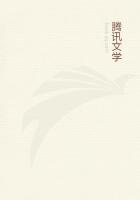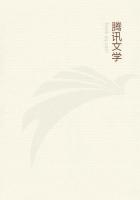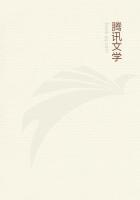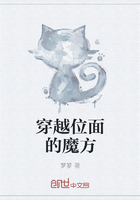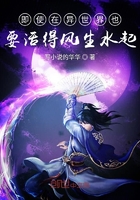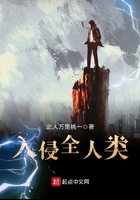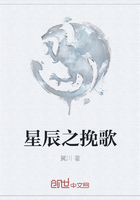From the beginning of the fighting our wounded had been carried to the houses at the rear, near the place of debarkation. I now set the troops to bringing their wounded to the boats. After this had gone on for some little time I rode down the road, without even a staff officer, to visit the guard I had stationed over the approach to our transports. I knew the enemy had crossed over from Columbus in considerable numbers and might be expected to attack us as we were embarking. This guard would be encountered first and, as they were in a natural intrenchment, would be able to hold the enemy for a considerable time. My surprise was great to find there was not a single man in the trench. Riding back to the boat I found the officer who had commanded the guard and learned that he had withdrawn his force when the main body fell back. At first I ordered the guard to return, but finding that it would take some time to get the men together and march them back to their position, I countermanded the order. Then fearing that the enemy we had seen crossing the river below might be coming upon us unawares, I rode out in the field to our front, still entirely alone, to observe whether the enemy was passing. The field was grown up with corn so tall and thick as to cut off the view of even a person on horseback, except directly along the rows. Even in that direction, owing to the overhanging blades of corn, the view was not extensive. I had not gone more than a few hundred yards when I saw a body of troops marching past me not fifty yards away. I looked at them for a moment and then turned my horse towards the river and started back, first in a walk, and when I thought myself concealed from the view of the enemy, as fast as my horse could carry me. When at the river bank I still had to ride a few hundred yards to the point where the nearest transport lay.
The cornfield in front of our transports terminated at the edge of a dense forest. Before I got back the enemy had entered this forest and had opened a brisk fire upon the boats. Our men, with the exception of details that had gone to the front after the wounded, were now either aboard the transports or very near them. Those who were not aboard soon got there, and the boats pushed off. I was the only man of the National army between the rebels and our transports. The captain of a boat that had just pushed out but had not started, recognized me and ordered the engineer not to start the engine; he then had a plank run out for me. My horse seemed to take in the situation. There was no path down the bank and every one acquainted with the Mississippi River knows that its banks, in a natural state, do not vary at any great angle from the perpendicular. My horse put his fore feet over the bank without hesitation or urging, and with his hind feet well under him, slid down the bank and trotted aboard the boat, twelve or fifteen feet away, over a single gang plank. I dismounted and went at once to the upper deck.
The Mississippi River was low on the 7th of November, 1861, so that the banks were higher than the heads of men standing on the upper decks of the steamers. The rebels were some distance back from the river, so that their fire was high and did us but little harm. Our smoke-stack was riddled with bullets, but there were only three men wounded on the boats, two of whom were soldiers. When I first went on deck I entered the captain's room adjoining the pilot-house, and threw myself on a sofa. I did not keep that position a moment, but rose to go out on the deck to observe what was going on. I had scarcely left when a musket ball entered the room, struck the head of the sofa, passed through it and lodged in the foot.
When the enemy opened fire on the transports our gunboats returned it with vigor. They were well out in the stream and some distance down, so that they had to give but very little elevation to their guns to clear the banks of the river. Their position very nearly enfiladed the line of the enemy while he was marching through the cornfield. The execution was very great, as we could see at the time and as I afterwards learned more positively. We were very soon out of range and went peacefully on our way to Cairo, every man feeling that Belmont was a great victory and that he had contributed his share to it.
Our loss at Belmont was 485 in killed, wounded and missing.
About 125 of our wounded fell into the hands of the enemy. We returned with 175 prisoners and two guns, and spiked four other pieces. The loss of the enemy, as officially reported, was 642 men, killed, wounded and missing. We had engaged about 2,500 men, exclusive of the guard left with the transports. The enemy had about 7,000; but this includes the troops brought over from Columbus who were not engaged in the first defence of Belmont.
The two objects for which the battle of Belmont was fought were fully accomplished. The enemy gave up all idea of detaching troops from Columbus. His losses were very heavy for that period of the war. Columbus was beset by people looking for their wounded or dead kin, to take them home for medical treatment or burial. I learned later, when I had moved further south, that Belmont had caused more mourning than almost any other battle up to that time. The National troops acquired a confidence in themselves at Belmont that did not desert them through the war.
The day after the battle I met some officers from General Polk's command, arranged for permission to bury our dead at Belmont and also commenced negotiations for the exchange of prisoners. When our men went to bury their dead, before they were allowed to land they were conducted below the point where the enemy had engaged our transports. Some of the officers expressed a desire to see the field; but the request was refused with the statement that we had no dead there.
While on the truce-boat I mentioned to an officer, whom I had known both at West Point and in the Mexican war, that I was in the cornfield near their troops when they passed; that I had been on horseback and had worn a soldier's overcoat at the time. This officer was on General Polk's staff. He said both he and the general had seen me and that Polk had said to his men, "There is a Yankee; you may try your marksmanship on him if you wish," but nobody fired at me.
Belmont was severely criticised in the North as a wholly unnecessary battle, barren of results, or the possibility of them from the beginning. If it had not been fought, Colonel Oglesby would probably have been captured or destroyed with his three thousand men. Then I should have been culpable indeed.

